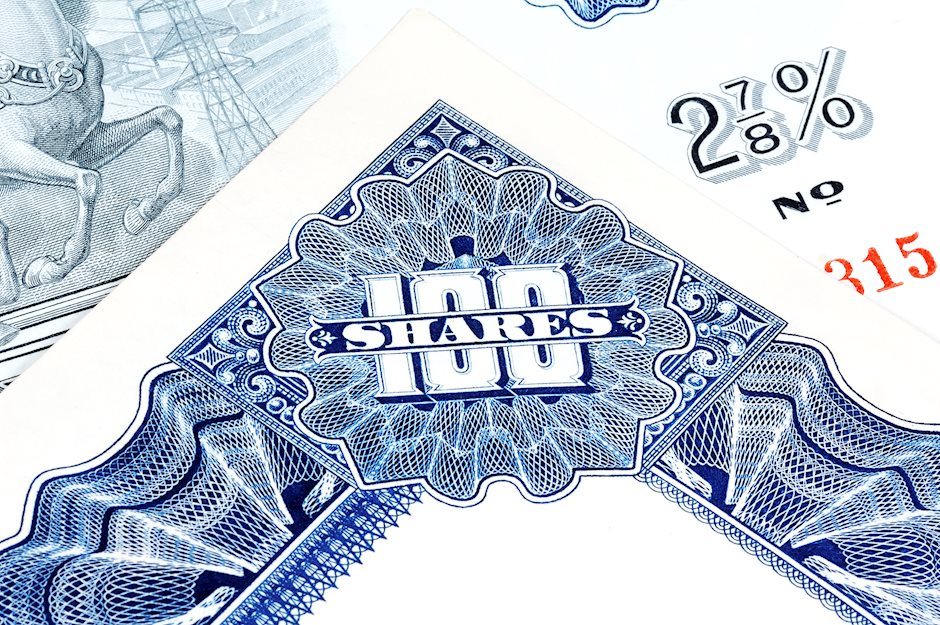Blackrock’s Dereliction of Duty

Like much of the rest of the world, investors are focused on the spread of the coronavirus and, to a lesser degree, the impeachment proceedings in the U.S. Senate.
Both are important, but in each we risk letting immediate concerns crowd out long-term risks.
The disease sweeping through parts of China and cropping up in various other parts of the world is a threat we must contain, and we will. We’ve learned from SARS in 2003 and H1N1 a decade ago.
The latest virus might spread, but no one appears to be taking it lightly, so there’s every reason to think we will get it under control and the economic impact will be short-lived.
As for the impeachment, nothing revealed so far looks like it will sway anywhere near the 20 Republicans required to convict the president and remove him from office. It’s historical, but the outcome is almost pre-ordained.
With those two things hogging the airwaves, we’ve little bandwidth left to discuss one of the biggest revelations of the last two weeks: Money Management behemoth Blackrock will divest from any company that earns more than 25% of its revenue from thermal coal.
This is the first move, not the last, and your money is at stake.
In an annual letter to clients, Blackrock CEO Larry Fink wrote:
In a letter to our clients today, BlackRock announced a number of initiatives to place sustainability at the center of our investment approach, including: making sustainability integral to portfolio construction and risk management; exiting investments that present a high sustainability-related risk, such as thermal coal producers; launching new investment products that screen fossil fuels; and strengthening our commitment to sustainability and transparency in our investment stewardship activities.
The letter went on to say (with emphasis in the original):
Given the groundwork we have already laid engaging on disclosure, and the growing investment risks surrounding sustainability, we will be increasingly disposed to vote against management and board directors when companies are not making sufficient progress on sustainability-related disclosures and the business practices and plans underlying them.
Blackrock manages almost $7 trillion. The company invests money for governments, pension funds, sovereign wealth funds, and endowments. In other words, they control the assets that are supposed to provide retirement benefits for tens of millions of people.
The company is shifting its focus from growing asset value while taking prudent amounts of risk, to enforcing its view of what companies should be doing to fight climate change.
The new direction of Blackrock follows on the heels of the announcement of the 181 CEOs of the Business Roundtable last summer. The group declared shareholder capitalism dead, with “stakeholder” capitalism the new order of the day.
Stakeholders include shareholders, workers, the community, and the environment. These businesses pledged to run themselves, that means deploying your capital as investors, in a way that’s good for all groups.
Just as with Blackrock, this brings up the question of, “According to whom?”
The largest money management firm in the world and almost 200 CEOs of leading companies just told us that they will use our investment dollars to affect social changes however they see fit.
That’s not their job.
If they want to use their personal funds to pursue social issues, great. But company resources are meant to be dedicated to running the business in a way that benefits the owners of capital. The only shared goal that management can identify is maximizing shareholder value, then individuals can use their gains to pursue whatever social goals appeal to them individually.
Increasing shareholder value doesn’t mean breaking the law or doing anything shady. That would break the main tenets of capitalism, which are the free exchange of labor for income and the free exchange of wealth (income) for goods and services. Anyone cheating on either side of employment or consumption is denying the other party of their free exchange.
This isn’t a free lunch.
I have to think that Fink and the managers at Blackrock do their best every day to increase the returns to investors. By changing their investment decisions based on something other than returns, they must be choosing less attractive investments or else they’d already be in them. Put another way, if the companies that Blackrock is targeting for divestment were already out of favor, then Blackrock wouldn’t own them in the first place.
The same goes for the CEOs. They must be changing their management decisions to include concerns beyond the prudent management of capital for the highest growth of the business. Every dollar they move from that effort is an investor’s dollar used for something other than the original purpose.
There’s very little pushback against these moves. Few are willing to stand up and be seen as acting against climate change initiatives or stronger communities. But that’s not the issue. The question is, who gets to decide? Should each of us be able to put our capital where we think it is best served for growth, protecting the environment, and improving our communities, or do we hand the last two responsibilities to unelected CEOs who are using our money?
If recent trends are any indication, the decision has already been made. We’re giving up returns in our individual stock investments and mutual funds so that investment managers and CEOs can pursue what they think is best.
Author

Dent Research Team of Analysts
Dent Research

















